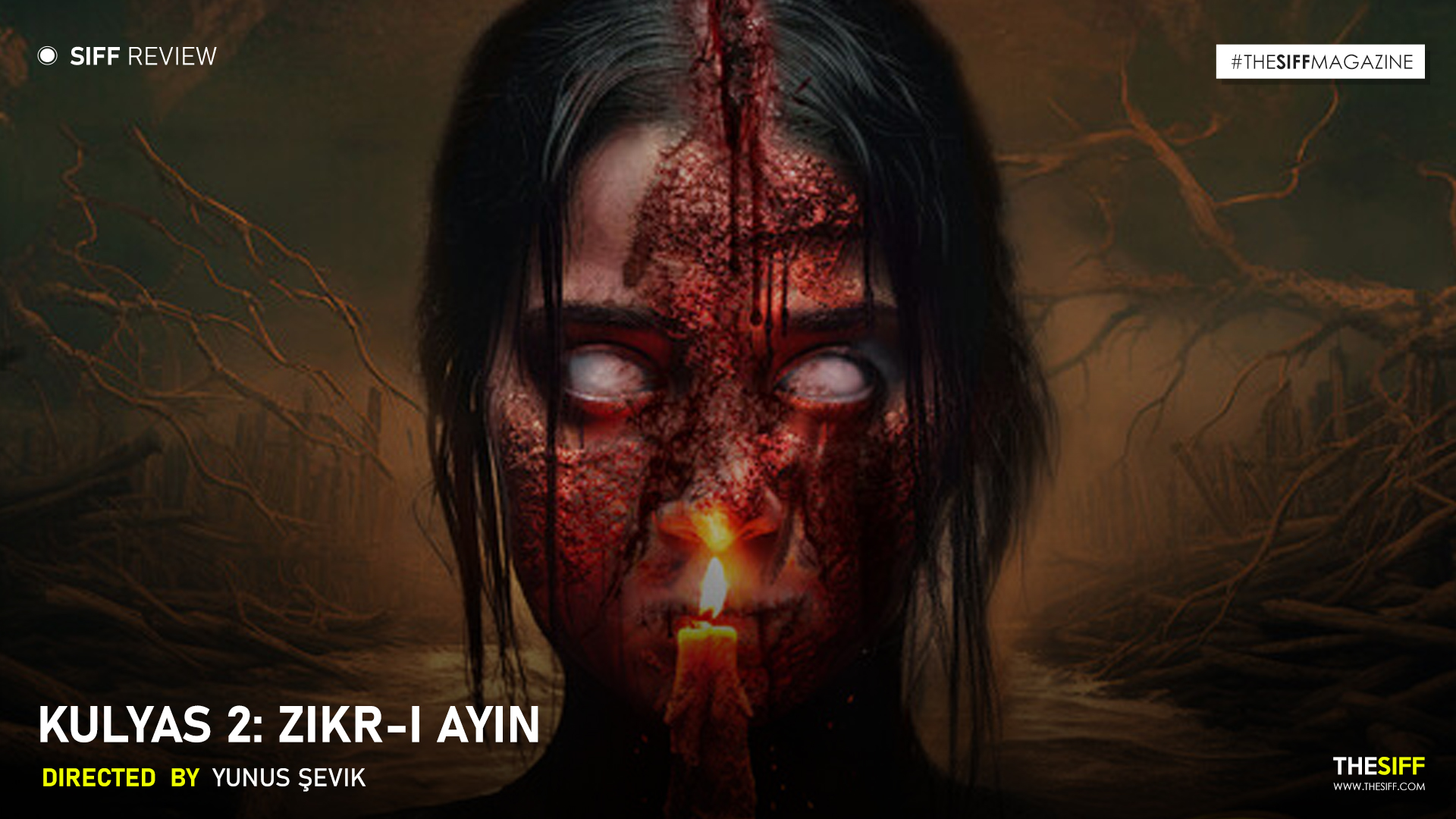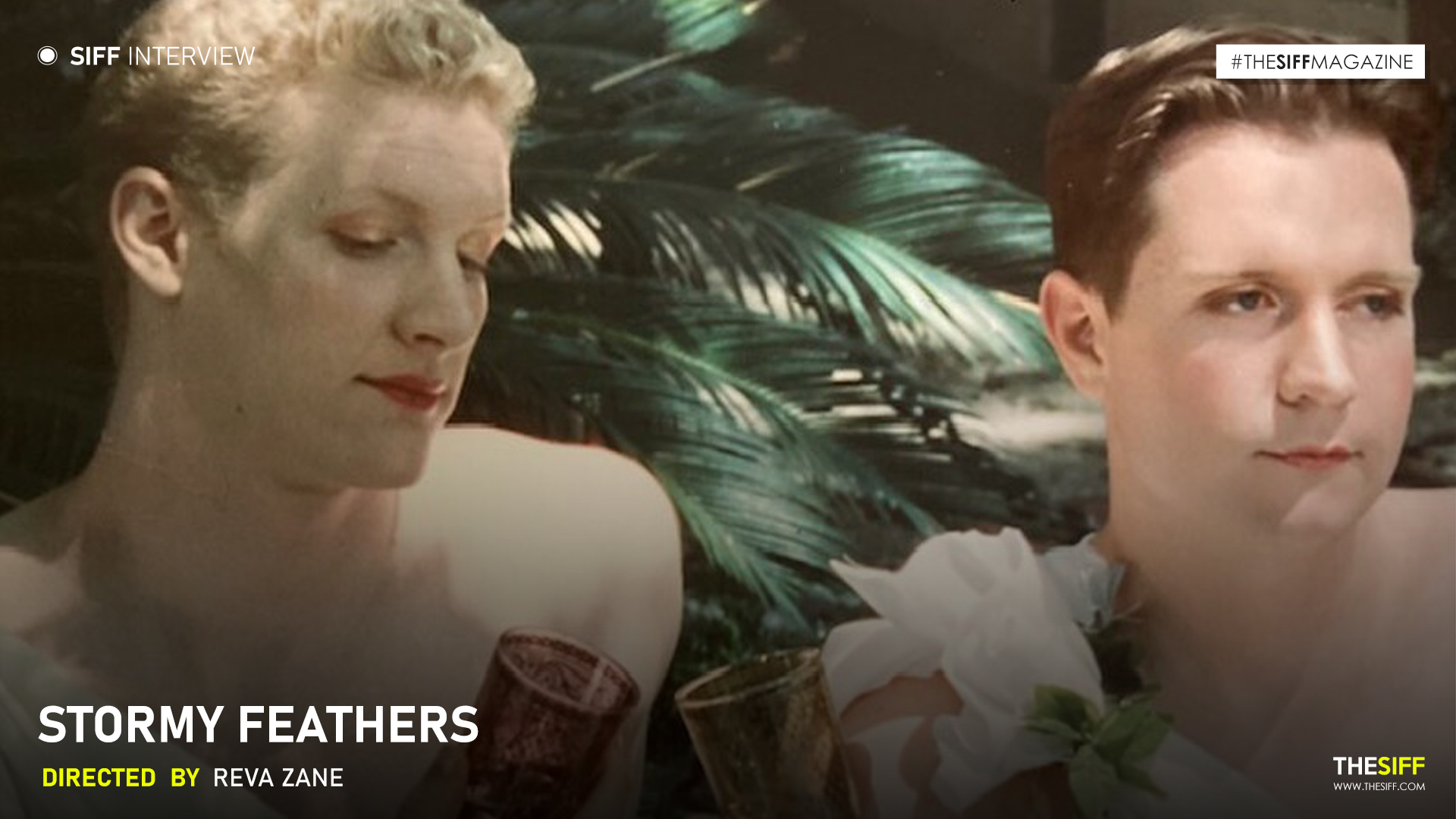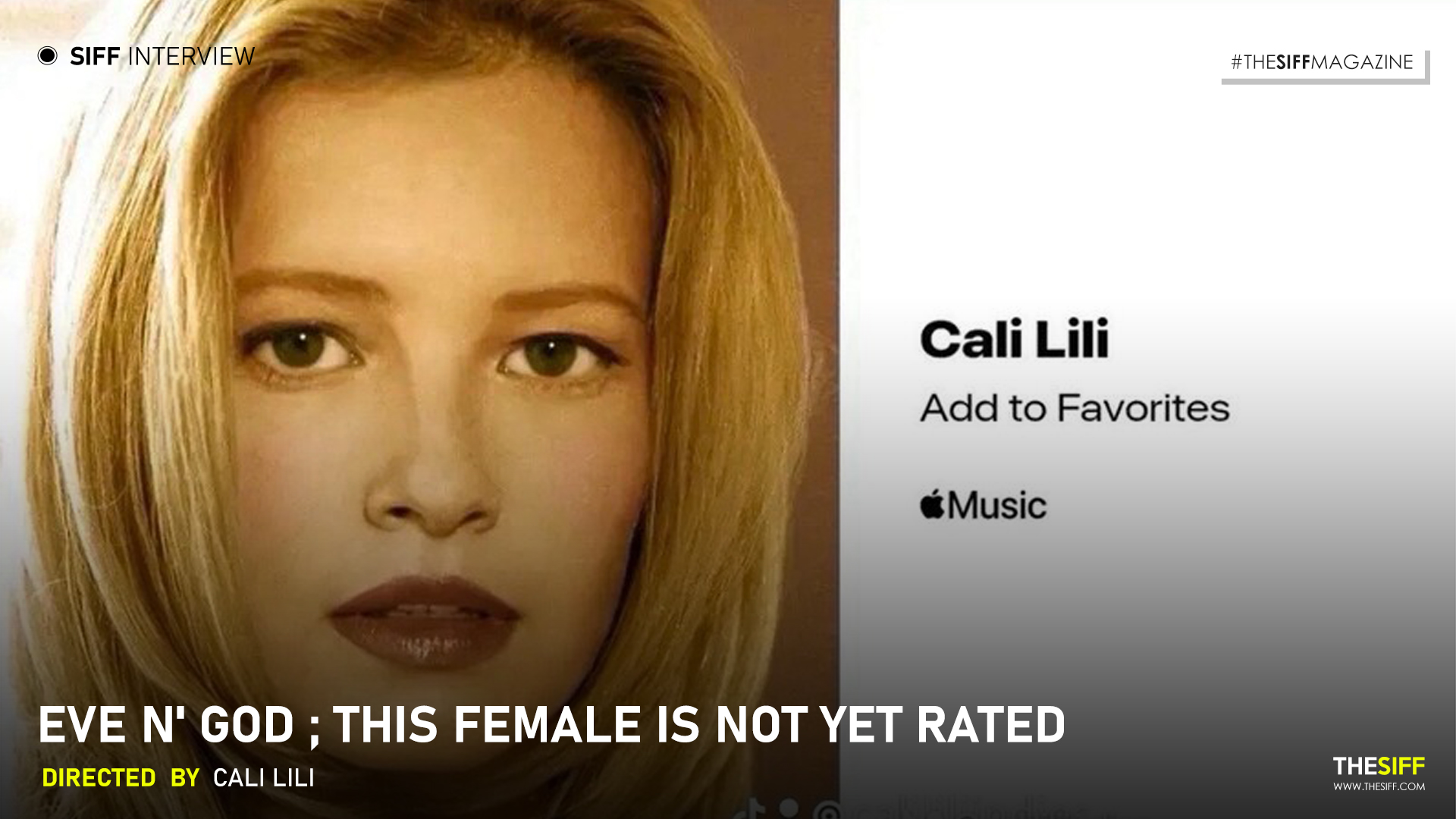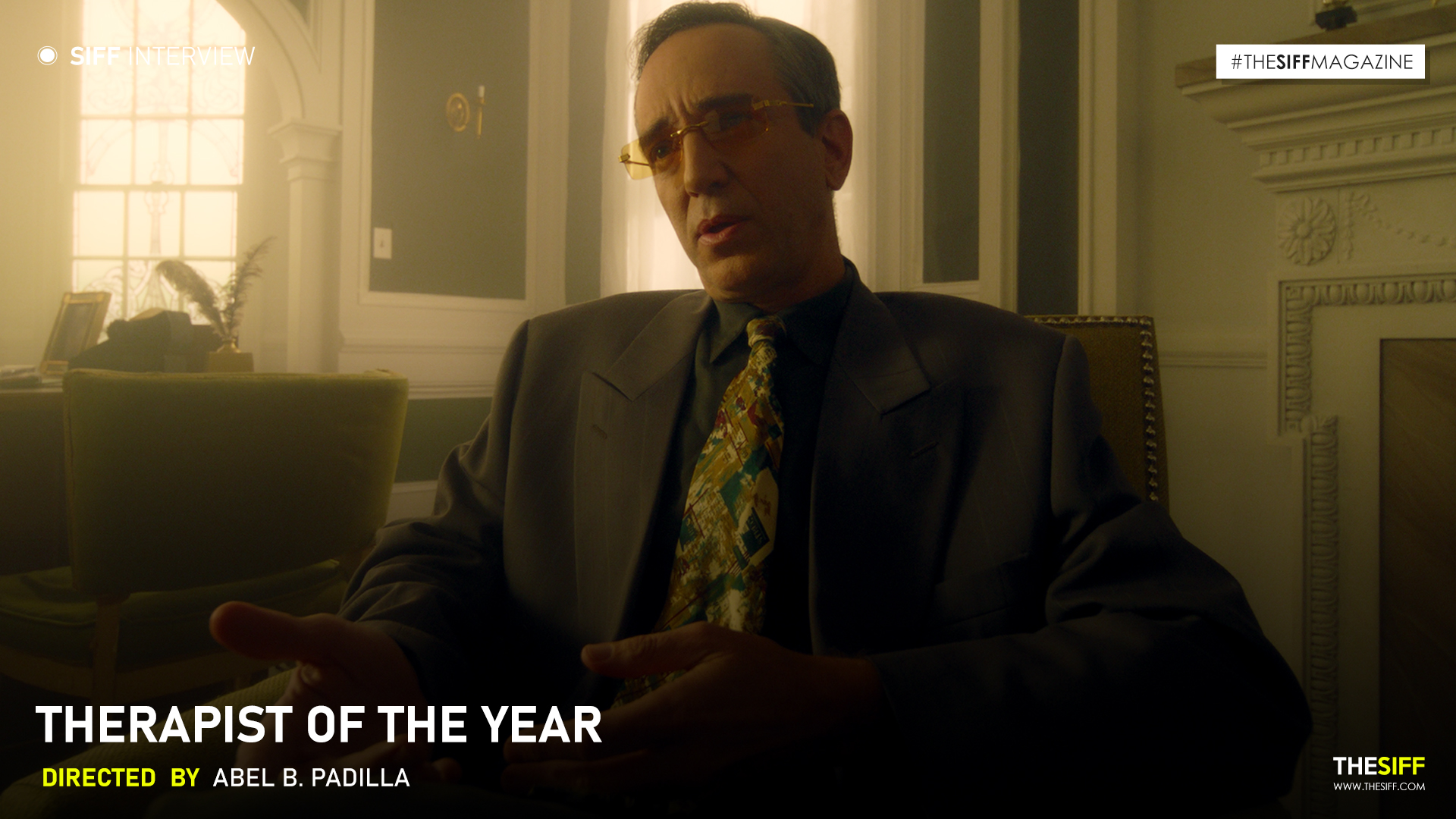
Movie: Nora`s Wedding anno 1905
Director: Melanie Ekholdt
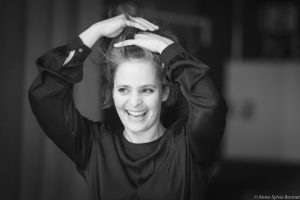
Hello Melanie, welcome to the SIFF ! It is good to have you here !
Tell us what inspired you to create “Nora’s Wedding”?
In the famous theater piece “A Doll’s House” written by Henrik Ibsen, Nora, the main character, uses “wonderful” in an incalculable number of times. So I wanted to explore what “wonderful” could mean for Nora. And then the idea of creating the most wonderful wedding came up. By means of written dialogues between Nora and her husband and their family friends, Henrik Ibsen managed to create a very powerful story with a lot of unspoken words.My personal opinion is that the non- verbal dialogue we see between people is just wonderful.
What happens if Nora does not use all these words, but focuses on a free, more open communication with her new husband? Could we then find out what wonderful really meant for Nora?
I wanted a free, impro- contact wedding dance style to symbolize the freedom Noras was searching for and then found in the relationship with her beloved Torbjørn. Nearly by coincidence Thorbjørn Brook Steen, who played the second husband of Nora, was a quite good dancer. When I did the casting for this short experimental movie, I chose to cast dancers as the wedding guests. By chance the main dancer was a very good group leader and he managed to create a free and relaxed atmosphere while the dancers and Torbjørn were waiting for Nora to come accompanied by the priestess. And finally we all co created the magic atmosphere of a beautiful ritual in between two quite wise, but also playful human beings surrounded by their loved ones.
Melanie, how would you describe Nora from your perspective?
Henrik Ibsen created a very human Nora. She has a lot of good sides, but also some shadow sides. Even if she has a good intention when she borrows money to travel to Italy with her sick, probably depressed husband, she makes a big mistake, when she is faking the signature of her father. That was the younger version of Nora, but through the process of trying to pay back her debts, she gets more mature. She learns to work ( she is sewing during the night) and she saves the household money she gets from her husband. Torvald as well does his best to support her and the family, but he is not sufficiently curious about what happens in her inner life. And he makes a big mistake when he thinks that it is going to be public that Nora has committed the crime of falsifying a signature. He then says many horrible, not beautiful words to her, probably because he is very afraid. It is then at that moment, Nora loses faith in him, and in their relationship. She then follows her intuition, and she decides to leave everything, without any planning.She takes some big decisions without thinking and without talking with other people about it. I think that it is creating a lot of pain in her and in her husband and children. I am wondering why she does not talk with Dr. Rank about her economical worries? Why does she keep all this for herself? Why does she share her flaws with her dear friend Kristine Linde just only at the end, not in the beginning? It is still a mystery for me.
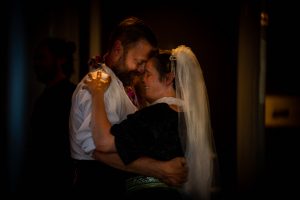
What role does history play in filmmaking?
I think that there is a personal history behind each film. Our stories from real life are important drives to create new stories. This drive gives the energy to produce a script or a draft and then the co-production of the film can start. Maybe the film at the end will have a more general story about some historic or cultural events, but I am really persuaded that the filmmaker has a very personal reason to shoot that film. Luckily there are many ways of symbolizing life events. So it is possible to protect oneself, the closest ones and family members by using fiction. I think then that our unconsciousness is also helping us, not to be too aware of topics or issues we are not ready for. Through the creative process and the discussions, Qand A and the feedback from the public the filmmaker can discover new stories of himself/herself. Even if the filmmaker in the beginning of the creative process did not think that the story in the film had something to do with his/her personal, familial or cultural history, I think most of the time new discoveries will appear in the light of day.
How did your journey start in films?
It was a very unconscious, organic start 25 years ago, at the end of the 90 s. As a young adult, during my holidays, I often got an idea of shooting a situation with friends, often at a nice place by the ocean or in a park. My friends accepted that I directed them nearly without a plan and the story created itself on location and while I was editing. I bought an editing program and one book about video editing, but never thought of going to a film school. It was just something playful and fun for me. Then with my work as a doctor and later on psychiatrist and with a family life with three kids I did not have the possibility to continue that journey. By working as a therapist I could use my creativity with the children and the families, I also prescribed drugs. After a while I found it quite difficult to put young people on medication. I therefore wanted to explore that topic by writing a book with a young man. I brought my camera to record our dialogues, also an unconscious act. The visual material turned out to be quite interesting and supported the stories he was telling me about his childhood and adolescence. He had made a lot of music videos and we therefore had enough material to transform our filmed conversations to a short documentary named “In love with craziness”. I love the documentary genre, but I have now made a series of experimental fiction short movies, because I needed the free space of fiction.
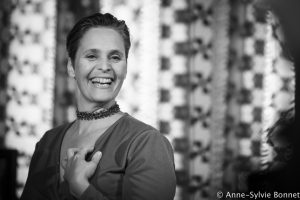
Melanie, as a director, who do you look up to?
I co-created my first short documentary “In love with craziness” with the producer Karina Astrup from House of Gary. She made me discover the universe of documentary and she is my first mentor, and I look up to her because of her life wisdom and mild humor.
Nefise Øzkal Lorenzten from Integral film has created many artistic beautiful documentaries where she mixes strong and important personal stories with cultural histories about gender and religion. She is a big source of inspiration for me.
The beautiful documentary “The Painter and the Thief” , where Benjamin Ree documented this special relationship during 3- 4 years was a real eye opener for me. I understand that it is possible to focus on dialogues and relationships in a documentary and let the issues aspect be more a choice for the public, not a direct message from the filmmaker.
In the fiction genre I am still searching for inspiration, but I like more abstract, poetic films like the sci-fi drama “After Yang” by Kogonada.
I am very drawn to strong drama stories with a lot of dance and good music like Baz Luhrman is creating. I am fascinated by how Baz Luhrman keeps the same visual style in “The Great Gatsby” 2013 and in his latest film about Elvis in 2022. I am wondering how he found his style.
“Triangle of Sadness”, the last feature film of the Swedish filmmakerRuben Östlund is a satirical drama, with incredible dialogues and amazing shooting, showing that it is possible to use drama to lift up important political issues.
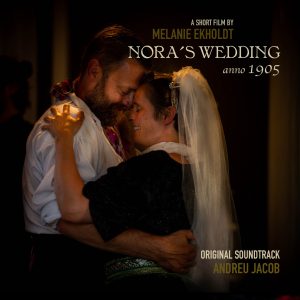
What significance do films have in your life?
Films are gradually taking more and more space in my life, because I love the free space films are giving me. Filmmaking gives me the possibility to co-create stories with other creative people. My kids all love watching movies and it is a big pleasure for me to discuss the films with them. I find it much easier to discuss emotional and mental health topics with my kids now than when I was just working in the field of mental health. Because of the duty of confidentiality I could not tell nor my family, nor my friends about the very heavy stories of the young persons I met as a child and adolescent psychiatrist. So I felt sometimes alone in the ocean of suffering. The universe of film gives me an opportunity to share both difficult and joyful stories about complicated lives and relationships with both my closest ones and creative colleagues.
As a director, what kind of movies do you wish to make?
I wish to make experimental movies, but with a clear storyline so the public can emerge in the universe of the characters. I want to create a fantasy flow, so people can feel their feelings and let go of the rational thoughts. And maybe, maybe discover something new about themselves.
I am now exploring how free and artistic a film can be without losing contact with ordinary people. I do not want to make films for a small group of people, because I find it more interesting to communicate with people of a big variety of ages and cultures.
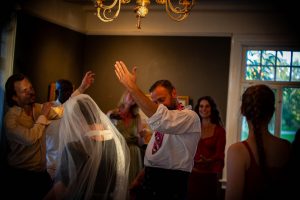
Melanie, are you planning your next film? If yes,what area are you focusing on?
I am planning 3 short movies. “Nora`s Ark” a 360 movie exploring the young people’s perspective on our modern world. “Easter- 1954” is mirroring our modern gender roles by letting a man play the character of Nora, and a woman play the character of Torvald. And I am in process of planning a fantasy short movie to explore the connection between our human basic relations needs and our use and misuse of nature.
Three quite different short movies. And that is exactly what I love about short movies; the shorter they are , the more experimental and freer it is possible to be. And time will show if they are in the spirit of time, which is by the way, the name of the fourth film project I have. A documentary about a psychiatrist’s search for the spirit, both in time and in herself: “Hunting the spirit of time”.
More about my story and my projects here : https://www.joyfulproduction.no/





